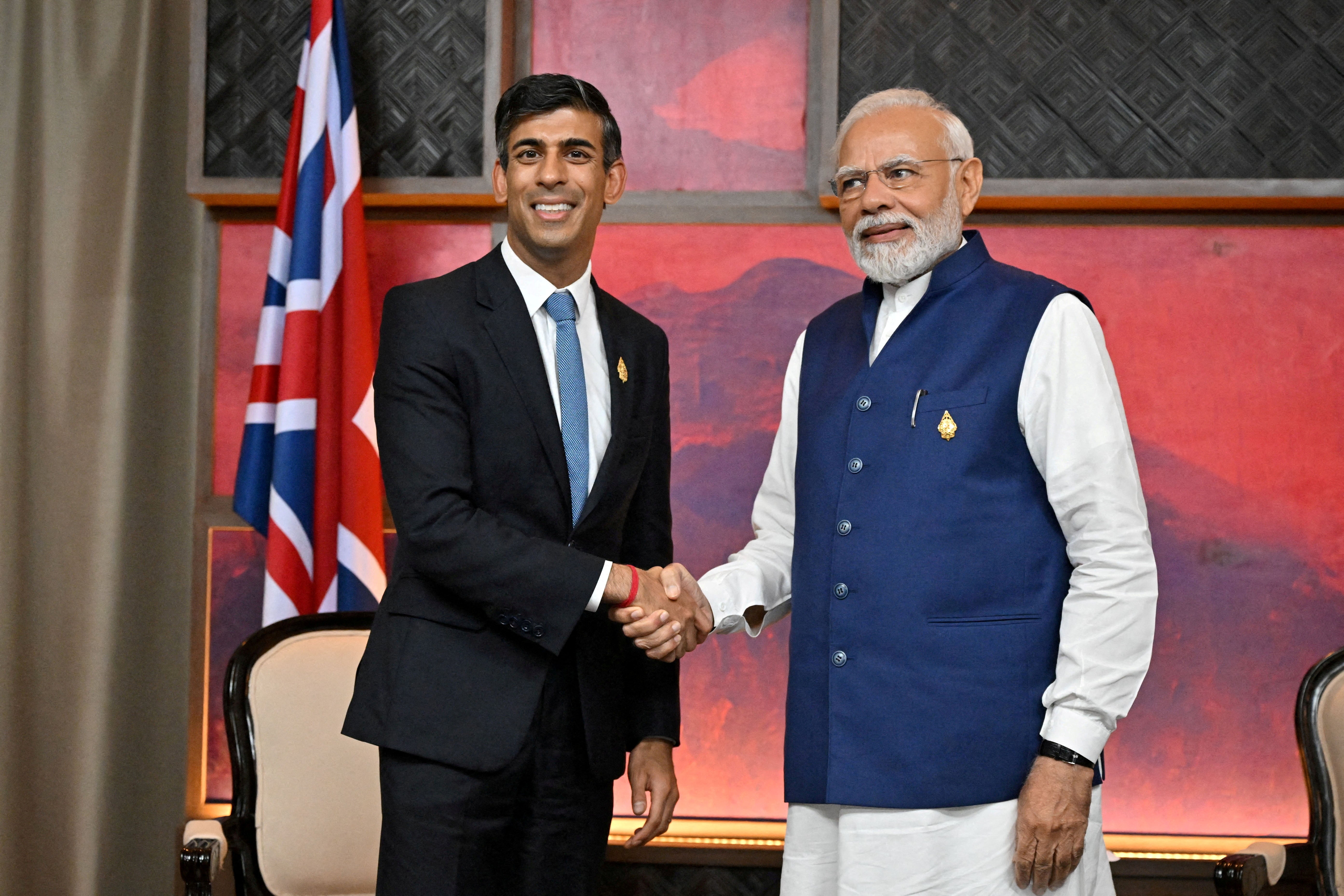Why Britain needs a post-Brexit trade deal with India
Modi’s stance on Ukraine and attacks on the BBC mean leaders have plenty to talk about, says Sean O’Grady

Rishi Sunak has held telephone talks with Indian counterpart Narendra Modi, focused on the slow-moving free trade agreement between the two countries about which there is much goodwill. However, the relationship has been complicated by a range of issues including a row over the BBC and some historic resentments brought to the fore by the upcoming coronation of King Charles. The leaders will meet face-to-face at the G7 in Japan next month, as well as at the G20 in India later this year.
What was the purpose of the phone conversation?
In short, a trade deal. UK-India bilateral trade was worth £34bn in 2022 – growing by £10bn year-on-year – and the emerging economic superpower is post-Brexit Britain’s best bet for hitching itself to a sizeable economy. Long-term benefits of a free trade agreement with India would probably dwarf those from the recent Comprehensive and Progressive Agreement for Trans-Pacific Partnership, also known as the Indo-Pacific trade bloc. With the chances of free trade deals with America and China remote at best, an Indian tie-up would be a tangible Brexit benefit for Mr Sunak, a long-standing and sincere Brexiteer.
Subscribe to Independent Premium to bookmark this article
Want to bookmark your favourite articles and stories to read or reference later? Start your Independent Premium subscription today.
Join our commenting forum
Join thought-provoking conversations, follow other Independent readers and see their replies